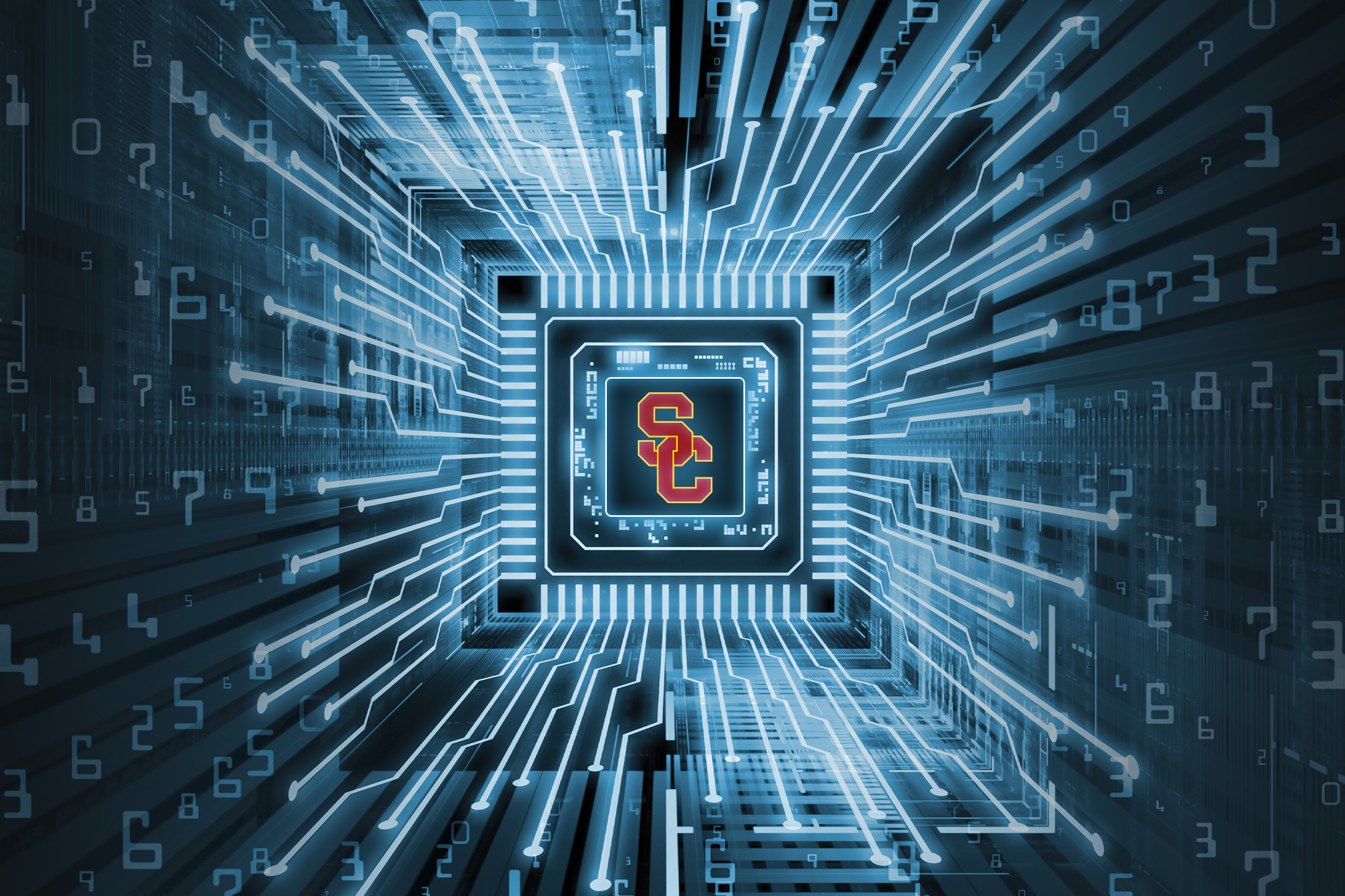
USC launches computing into the next frontier
USC launches $1B-plus initiative for computing including advanced computation, quantum computing, AI and ethics
- USC launches the largest and most comprehensive academic initiative in its history.
- The Frontiers of Computing initiative includes opening a new School of Advanced Computing, enhancing educational opportunities in ethical computing for students across the university, advancing new research and expanding USC’s footprint in Silicon Beach, part of L.A. County’s growing tech corridor.
USC President Carol L. Folt launched a $1 billion-plus initiative to expand and infuse advanced computing throughout the university’s programs and curriculum with ethics at its core. Grounded in responsible technology, USC will accelerate innovation with novel and robust educational and research opportunities across all disciplines.
“I want every student who comes through our programs, whether they are in science, business, the humanities or the arts, to have a solid grounding in technology and the ethics of the work that they do,” Folt said. “We will integrate digital literacy across disciplines to create responsible leaders for the workforce of the future.”
The Frontiers of Computing initiative is a major step forward on one of Folt’s moonshots for USC. A $260 million gift to USC in 2019 jump-started the effort when Folt said the university would advance and expand computing research and education across the university in a strategic and thoughtful way.
Under USC Frontiers of Computing, USC unites its multiple strengths in computer science and advanced computing, data analytics, imaging, telemedicine and the creative economy. The initiative includes a new School of Advanced Computing that will serve as a nexus and incubator for advanced computation projects for students and faculty. It will spur research and innovation in advanced computing technologies, including artificial intelligence and machine learning, data science, blockchain and quantum information.

“I want every student who comes through our programs, whether they are in science, business, the humanities or the arts, to have a solid grounding in technology and the ethics of the work that they do. We will integrate digital literacy across disciplines to create responsible leaders for the workforce of the future.”
– Carol L. Folt, USC President
All of this will be guided by ethics and responsibility. USC has long been a leader in education, research and development that shape the formation of best practices for the uses of technology. The university will continue to acknowledge, anticipate and navigate the potentially adverse impacts of technology.
USC hosts a growing number of computer science graduates, including more than 1,330 graduate and undergraduate students who are set to earn their degrees this month, prepared to enter the jobs of today and spur the creation of new jobs for tomorrow through their own creativity, innovation and entrepreneurship.
Through USC Frontiers of Computing, USC will prepare society for a more tech-intensive world of work, spark new technological advances to improve people’s lives and shape responsible policy.
Because every discipline today requires a level of digital fluency, students in all schools will be exposed to training in data analytics, coding and ethics, among other topics. In addition, the university will be expanding experiential learning opportunities with industry partners, particularly in Silicon Beach. Already, USC is among the largest providers of tech talent in the U.S. and confers the most computer science degrees among private research institutions.
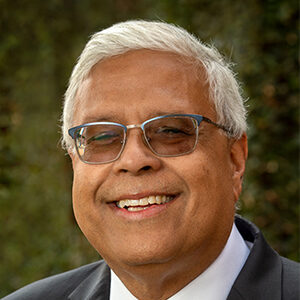
“This endeavor is a tremendous opportunity to apply new computing tools to accelerate and expand the impact of scientific discovery. It is not only the ability to solve problems that sets this apart, but the speed with which it can be done.”
— Ishwar K. Puri, USC Senior Vice President for Research and Innovation
USC will add to its brain trust a roster of world-class scientists, and computation experts across multiple fields with a track record of entrepreneurship, mentorship and groundbreaking research collaboration with colleagues across the spectrum of disciplines.
The initiative is expected to increase the university’s economic value to the region (already estimated at $8 billion in a 2017 analysis) and the globe. The initiative will result in thousands more students earning computer science degrees and gaining digital expertise to bring their technological talents to jobs across multiple professions worldwide.
USC Frontiers of Computing is an investment in education, research and the Southern California economy — in particular, Silicon Beach, an area encompassing Marina del Rey, currently the locus of the USC Viterbi School of Engineering’s Information Sciences Institute, and Playa del Rey, home of the USC Viterbi’s Institute for Creative Technologies.
The initiative will start in three key areas of technology: advancing AI and machine learning software; improving hardware efficiency and scalability; and, in this era of big data, expanding quantum computing.
“This endeavor is a tremendous opportunity to apply new computing tools to accelerate and expand the impact of scientific discovery,” said Ishwar K. Puri, USC senior vice president for research and innovation. “It is not only the ability to solve problems that sets this apart, but the speed with which it can be done. That’s paramount because such problems as climate change jeopardize our planet and we must begin to address this now to ensure a continuing and, we hope, improving quality of life.”
USC has been rising in the ranks for federal financing of computing research (it is now fourth with $110 million in federal funds, according to the National Science Foundation). It also leads the nation in the combined undergraduate and graduate students who earn computer science degrees.
Ultimately, the university’s endeavor to launch a renaissance in computing could propel greater investment, growth and innovation across the Southern California region, the state and the world.
“The world needs engineers and computer scientists to solve the grand challenges we face,” said Yannis C. Yortsos, dean of the USC Viterbi School of Engineering, which will oversee the new school. “The new School of Advanced Computing will tackle this goal by developing reimagined engineering curricula, that also emphasize the ethics of technology, in our fast-changing world.”
A legacy of innovation
For more than 50 years, USC has pioneered breakthroughs in computer science, AI, machine learning and quantum computing, including the creation of the domain name system (e.g., .com, .net, .edu), natural language processing that preceded current large language models, the first quantum computing system at a university and socially assistive robots.
USC Frontiers of Computing builds upon the university’s strong foundation of entrepreneurship and computing innovations, such as USC Viterbi’s ISI, which helped design, develop and run the early internet, and ICT, which pioneered new advances in virtual reality.
In addition, quantum computing holds the promise of processing vast, massive amounts of data quickly. Home of the USC-Lockheed Martin Quantum Computing Center, USC was the first university in the world and the only university in the United States to host and operate a commercial quantum computing system.
The USC Quantum Computing Center’s opening in 2011 ushered in a wave of new quantum computing centers, followed by Google and NASA in 2013.
“I am particularly excited about the prospect of expanding upon USC’s long history of leadership in quantum computing,” said Amber D. Miller, former dean of the USC Dornsife College of Letters, Arts and Sciences, which oversees quantum information science. “The potential is tremendous not only for great progress in applications such as cryptography and seismic simulations, but also for foundational breakthroughs in research areas like black holes, computational biology and quantum materials.”
A pivotal moment
The new USC School of Advanced Computing will position the university to be the leading source of tech talent on the West Coast. Within the next decade, more than 28,000 USC students will graduate with computing-related proficiency across different disciplines and degrees, preparing them for tech-forward professions of the future, university projections show.
The school will be headquartered at the Dr. Allen and Charlotte Ginsburg Human-Centered Computation Hall. The seven-story, 116,000-square-foot hall, now under construction and due to be completed by spring 2024, features interactive spaces and laboratories.
By spring next year, the ranks of faculty at the new school will begin to expand. Thirty new faculty members will be appointed in priority areas by 2025; another 60 will have been recruited by 2030. While enhancing the educational and research opportunities attractive to undergraduate and graduate students, the addition of faculty will expand USC’s portfolio of intellectual property and widen its network of collaborators across academia and industry.
Collaboration across multiple schools and disciplines
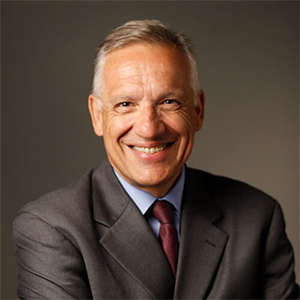
“The world needs engineers and computer scientists to solve the grand challenges we face. The new School of Advanced Computing will tackle this goal by developing reimagined engineering curricula, that also emphasize the ethics of technology, in our fast-changing world.”
— Yannis C. Yortsos, Dean, USC Viterbi School of Engineering
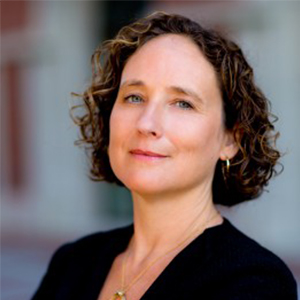
“The potential is tremendous not only for great progress in applications such as cryptography and seismic simulations, but also for foundational breakthroughs in research areas like black holes, computational biology, and quantum materials.”
— Amber D. Miller, Former Dean, USC Dornsife College of Letters, Arts and Sciences
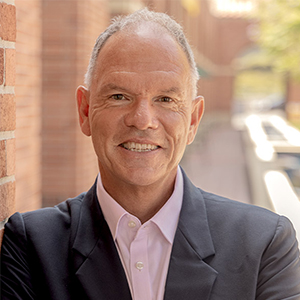
“With an entire academic department dedicated to data science, and with technically skilled faculty placed throughout all our business programs, we are well-placed not only to focus on the cutting-edge business applications of technologies like AI and blockchain, but also to understand and shape their consequences for society.”
— Geoffrey Garrett, Dean, USC Marshall School of Business
“The business opportunities and societal impact of the ever-more-rapid computing revolution are immense, and USC is at the forefront of both,” said Geoffrey Garrett, dean of the USC Marshall School of Business. “With an entire academic department dedicated to data science, and with technically skilled faculty placed throughout all our business programs, we are well-placed not only to focus on the cutting-edge business applications of technologies like AI and blockchain, but also to understand and shape their consequences for society.”
The USC Jimmy Iovine and Andre Young Academy for Arts, Technology and the Business of Innovation is another example of how faculty and students work across disciplines to create novel solutions to pressing problems.
“When Dre and I started Beats, we found potential hires were only trained in linear thinking in one discipline such as technology or design — rather than the big picture of what was needed to truly collaborate,” said Jimmy Iovine, music executive, entrepreneur and co-founder of the USC Iovine and Young Academy. “The Iovine and Young Academy’s adaptive learning framework is designed to anticipate and evolve with the pace of societal change. It cultivates digital natives who can innovate at the intersection of design, technology, business and culture to address the world’s most complex challenges. IYA students bring an extraordinary mindset to reimagine how we live, learn, work and create through the Frontiers of Computing.”

Innovation for the public good
USC Frontiers of Computing will incorporate the recently announced USC Center for Generative AI and Society to seed research, convene experts and expand the university’s national leadership in computing with a special focus on the ethical use and innovation of generative AI in areas such as the arts and education.
In addition, Yortsos affirms that ethics and communication skills to ensure trustworthy technologies will be an important part of a reimagined USC curriculum. “We aim to educate trustworthy engineers and professionals, with outstanding technical competence and outstanding technical character. Together, the two create trust, sorely missing in today’s world. Frontiers of Computing must also speak to this.”
The computer science department in USC Viterbi will be named the Thomas Lord Department of Computer Science to honor the donor, philanthropist, engineer and inventor who founded the Lord Foundation. USC will also endow a chair in the name of the late Donald M. Alstadt, the former Lord Corporation president and director of the Lord Foundation of California, who was instrumental in bringing the Lord Foundation to USC. The university plans to hold an event to celebrate these milestones in the fall.
“We are extremely pleased to see how USC is expanding on its history of innovation and creativity to extend Thomas Lord’s legacy for future generations,” said Paul “Mickey” Pohl, a trustee of the late Thomas Lord’s trust from its inception in the 1980s, who also served on various of his boards including the Lord Foundation of California. The university acknowledged the generosity of many of those who made the gift possible, including Pohl, Lt. Gen. Fred McCorkle, RAdm. H. Kirk Unruh, Patrick J. Finneran Jr., Gen. James Amos, Edward Auslander and the late Donald M. Alstadt.
“The Frontiers of Computing initiative is an expansive and bold move that will enhance education and research in advanced computing with responsibility and integrity,” Pohl said. “It also fits so closely with the vision of Thomas Lord, and that of his friend and successor as Lord Foundation CEO, Donald M. Alstadt, for how institutions like USC could advance the public good.”
Frontiers of Computing by the numbers
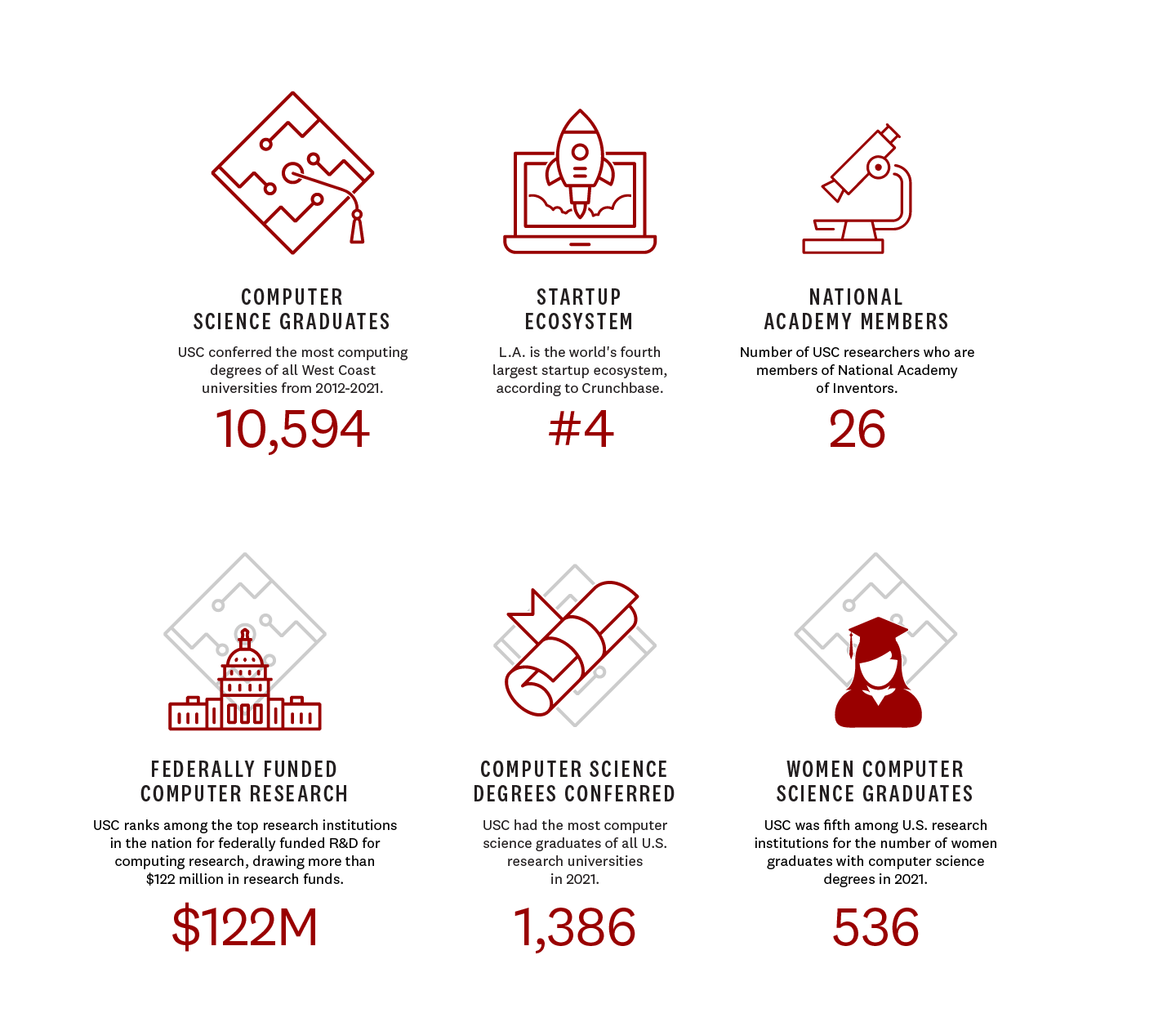

A hub for talent, turbocharged innovation
Los Angeles is home to one of the most dynamic tech ecosystems in the United States. It has one of the most diverse, innovative and creative populations found anywhere, positioning Southern California to become a turbocharged innovation incubator.
Anchored by its two research powerhouses — ISI and ICT — Silicon Beach will be an expanded hub for applied research and innovation. It will firmly connect USC with the Westside tech corridor that includes campuses for Google, Amazon, SpaceX and other leading technology firms.
The initiative will also expand on USC’s longstanding commitment to community engagement. The university plans to create a new presidential scholars program that will prepare community college students to successfully transfer into four-year degree programs at USC that will land them careers in technology. USC will also provide computing and coding camps for K-12 schools and community college students in Silicon Beach, and the university will continue to partner directly with the creative arts community.
“We all know the world is changing very fast right now,” Folt said. “We need to take that momentum of change — and couple it with USC’s history of innovation — to create what has never been done before. And we’re going to do it.”
USC’s tradition of excellence in advanced computing
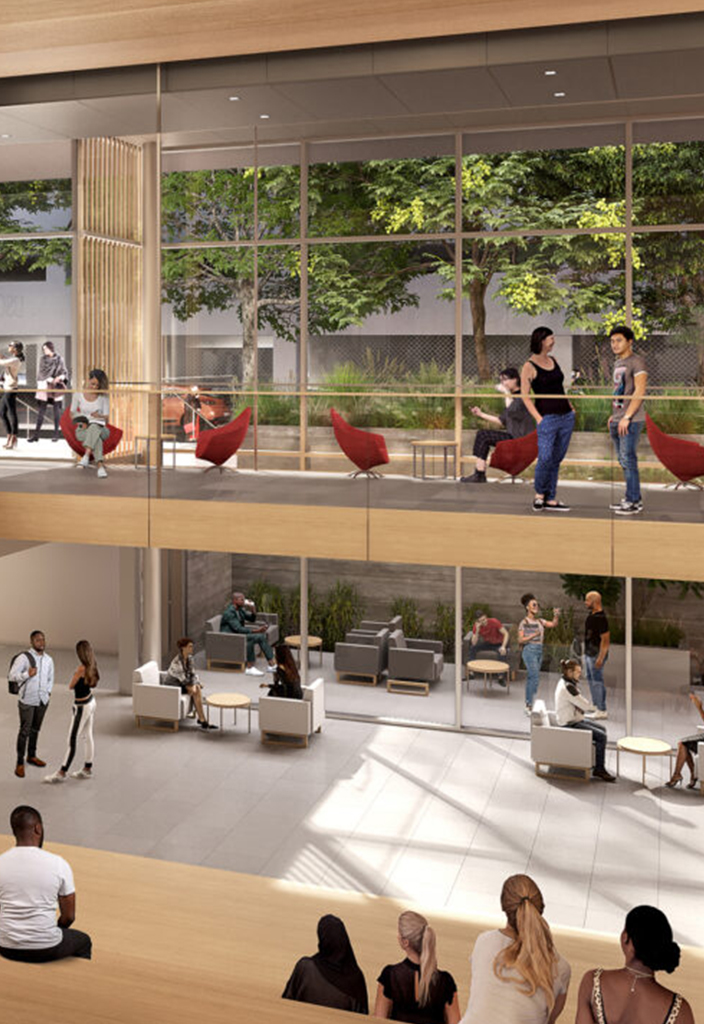
USC launches School of Advanced Computing
The new school, a key feature of USC President Carol Folt’s Frontiers of Computing “moonshot,” will act as a nexus for advanced computing research and education across the university.

USC selected by Department of Defense for Microelectronics Commons hub
The university will lead one of eight regional innovation hubs funded by the CHIPS and Science Act.
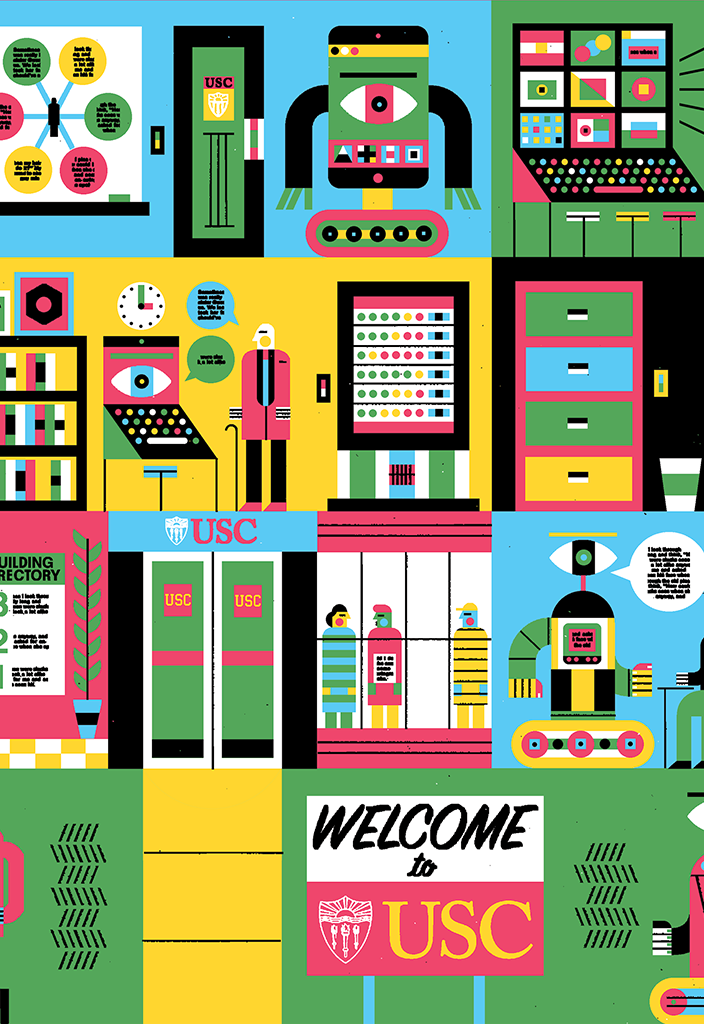
How AI is changing Trojan learning
Dance, linguistics, drama, law—the power and potential of AI is reshaping nearly every academic discipline at USC.
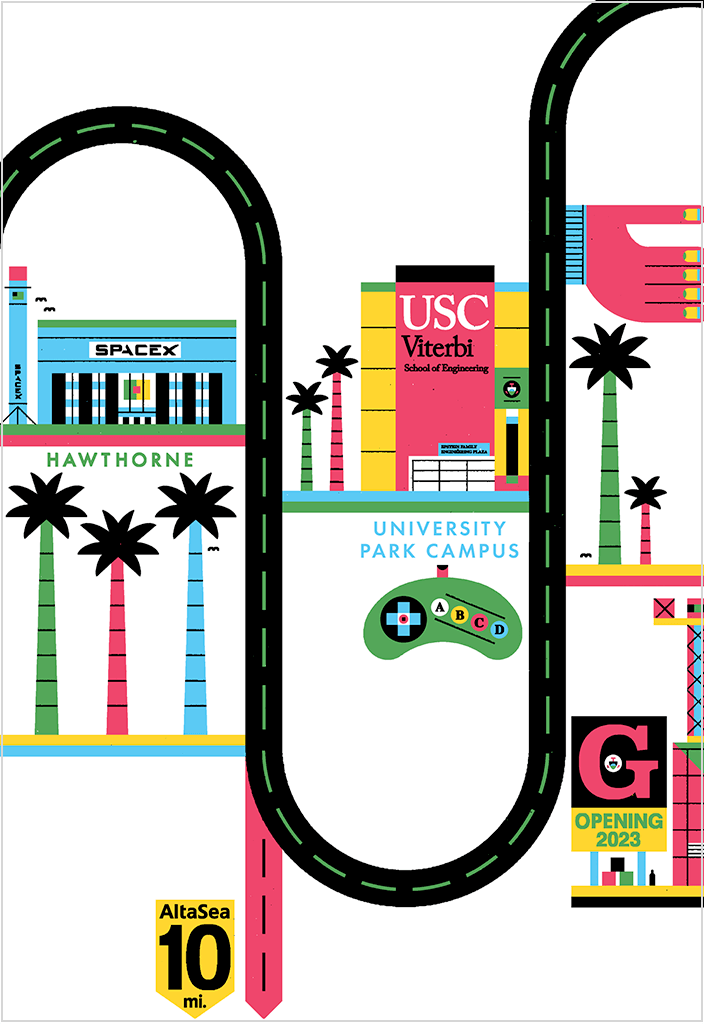
Advanced computing at USC is everywhere
A visual guide to where USC has made its mark on the computing landscape throughout Southern California.
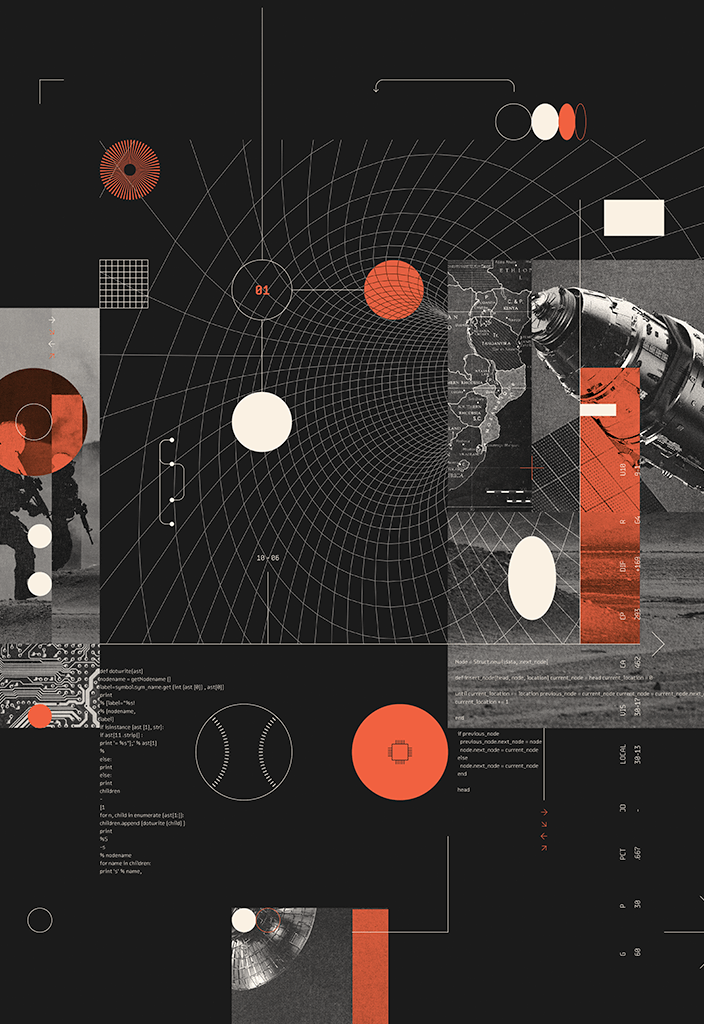
Beyond predictive text
Will your city be under attack in the next six months? What are the odds that your favorite team will make the playoffs? USC researchers use AI to look for answers.
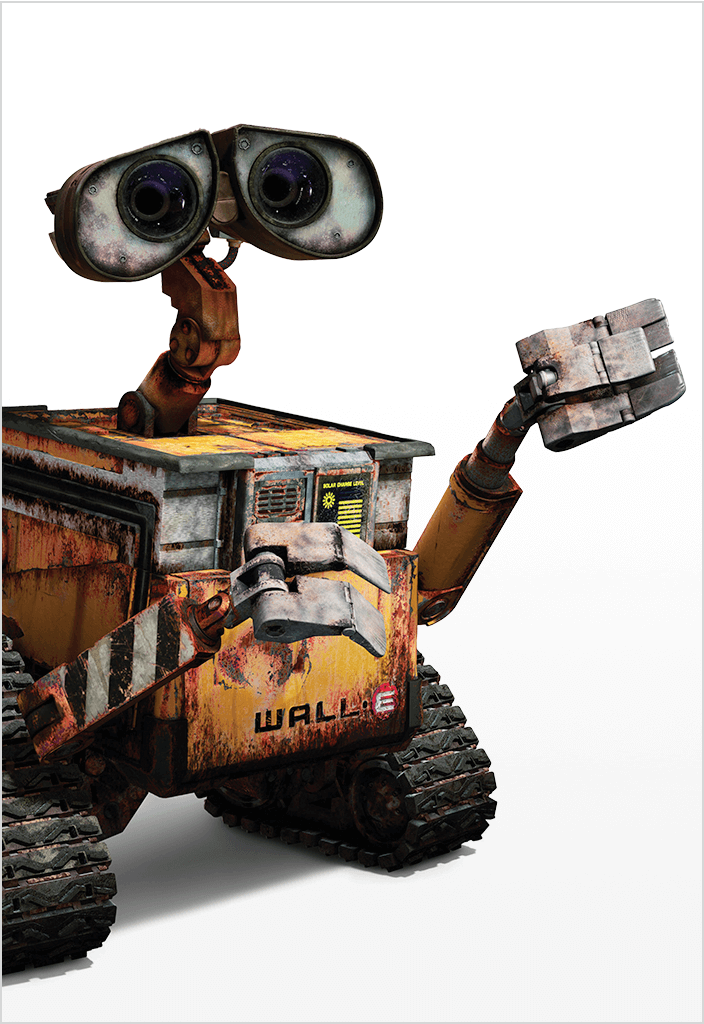
Everything you wanted to know about AI… but never knew to ask
USC experts on loving, fearing and possibly even merging with AI.

How big data can help feed us
Artificial Intelligence will integrate and analyze diverse data and models to make farming recommendations for more bountiful harvests in Ethiopia.
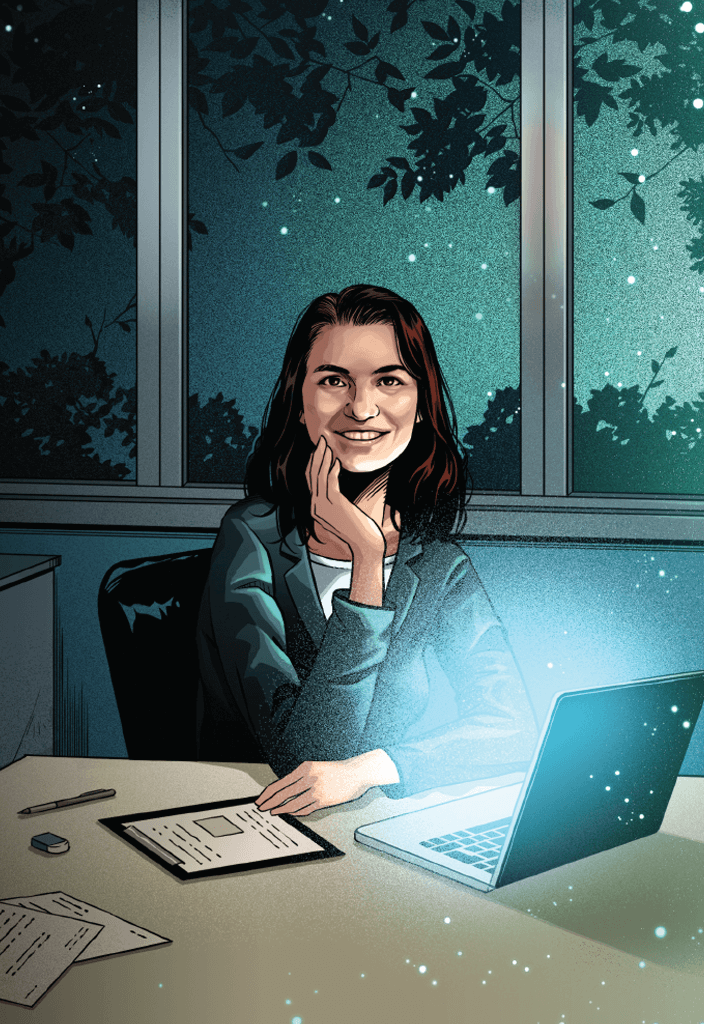
The places that built me
Professor Burçin Becerik-Gerber, chair of the Sonny Astani Department of Civil and Environmental Engineering at the USC Viterbi School of Engineering, imagines living with “smart” buildings in this video.

Algorithm nation
Artificial intelligence amplifies core research strengths at the Keck School of Medicine of USC.
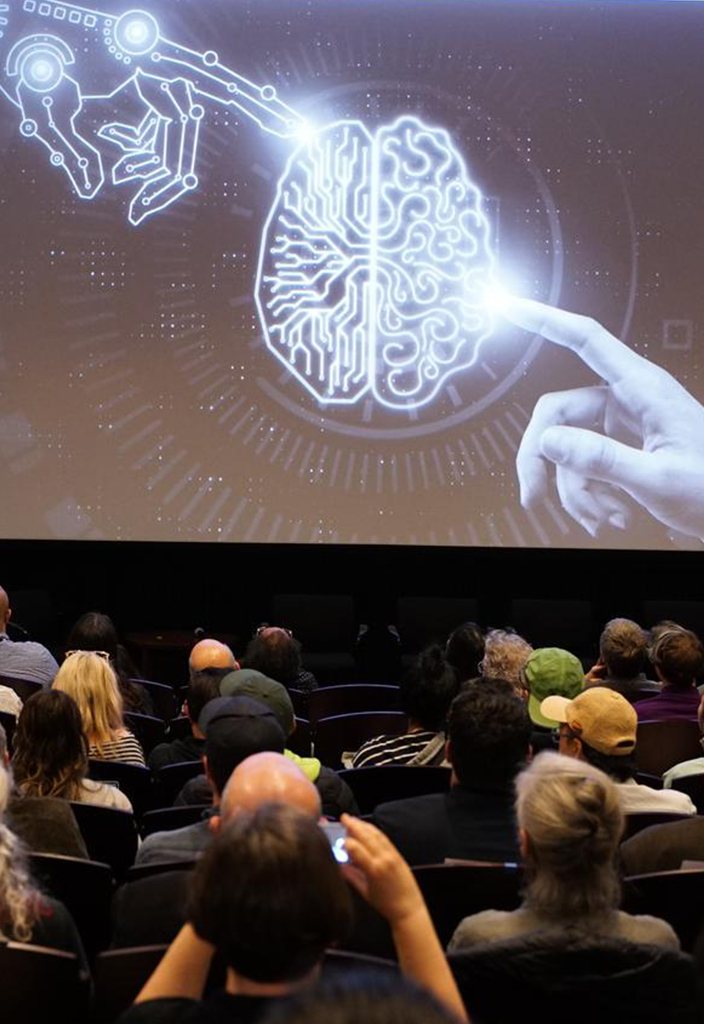
AI panel quells worries about the bots taking over creative industry jobs
A forum held at the USC School of Cinematic Arts brought together specialists in engineering, computer science and filmmaking to talk about the capabilities and limitations of platforms like ChatGPT, Midjourney and DALL.E.
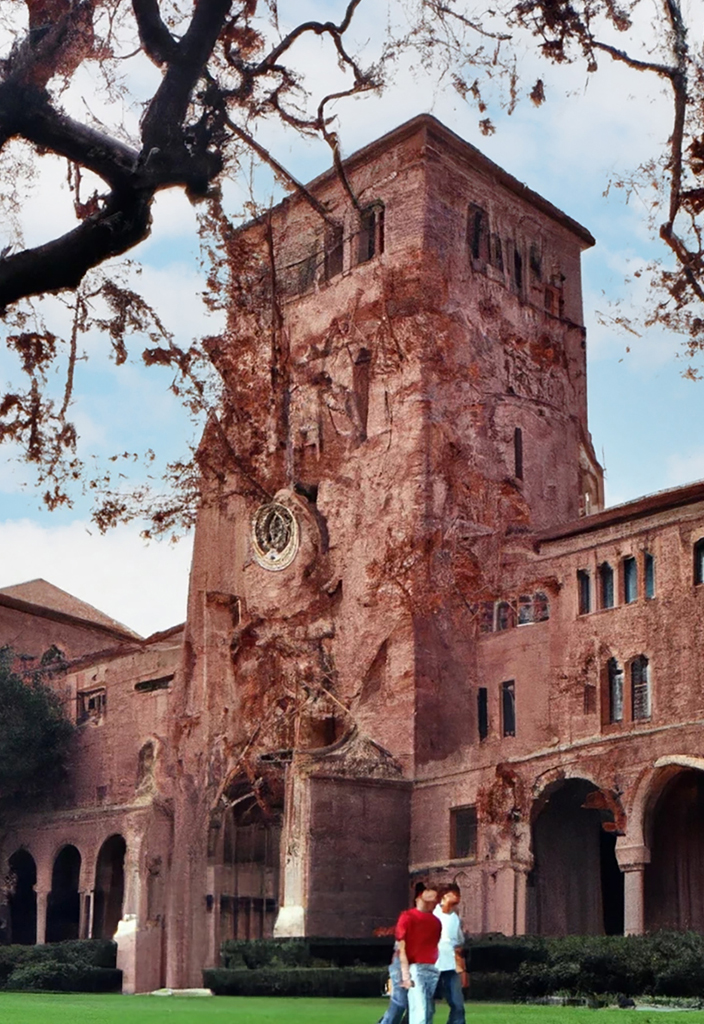
USC dives into AI research, education with new Center for Generative AI and Society
Amid the buzz about generative AI tools like ChatGPT, USC forms research center with $10 million in seed money and influential experts from the fields of computer science, film, media, education and more.
